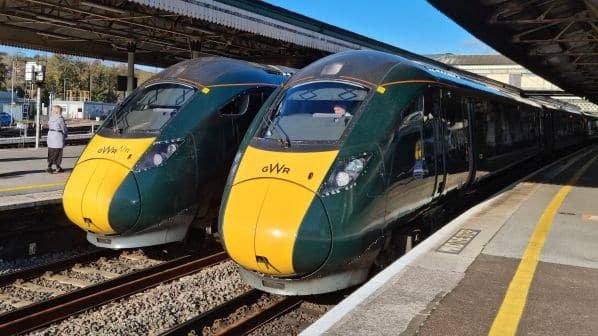BRITAIN’s Labour Party unveiled its plan for the country’s rail network on April 25. The party, which, according to opinion polls, is the front runner to win a general election later this year, has outlined changes it will make to the management and operation of the existing network.
However, the 28-page Getting Britain Moving document reveals several key features of the British rail system will remain unchanged. It also does not refer to future major projects such as HS2 and Northern Powerhouse Rail or state how much money will be invested in rail.
Labour’s core proposal is to create a new arms-length public sector body called Great British Railways (GBR) that will “be responsible for planning timetables, improving services, and the operation, maintenance, and improvement of rail infrastructure.”
Confusingly, the existing British government is already creating a new rail management entity, also called Great British Railways, although its scope would be different to that proposed by Labour.
According to the Labour plan, GBR will be formed by “a ‘directing mind’ of empowered rail industry experts and professionals,” which will be overseen by the secretary of state, who the party describes as “a passenger-in-chief.”
The present system of operating contracts for passenger operations held by private companies will be progressively run down, with responsibility transferred to GBR, a process Labour says it expects to complete during its first term in office. Ownership of stations, currently largely held by Network Rail, will also transfer to GBR.
The plan proposes specific improvements to passenger services, including automatic delay and cancellation refunds, more integrated timetables, ticketing, and fares, and the creation of a single new passenger watchdog, the Passenger Standards Authority (PSA). The PSA will take on the roles currently held by Transport Focus and the Rail Ombudsman in their entirety, as well as the customer-oriented aspects of the Office of Road and Rail.
The document acknowledges the importance of modal shift and Labour pledges to set targets (presently unspecified) for transfer of goods and passengers from air and road to rail as a way of reducing carbon emissions from the transport sector.
Labour acknowledges that significant features of current rail operations will remain, including those relating to rolling stock ownership, freight operations and open-access passenger arrangements. Under the plan, the private sector will continue to own the trains running on the network and run freight services. Open-access passenger services “will remain where they add value and capacity to the rail network.”
Key omissions
Remarkably, the Labour plan makes no reference to key capital infrastructure projects such as HS2, Northern Powerhouse Rail and extension of the country’s electrified rail network. The document also makes no mention of the likely cost of implementing the proposals made or the total amount a Labour government would invest in the rail sector.
Nevertheless, reaction from the rail industry has been largely positive, including from Ms Maggie Simpson, director general of the Rail Freight Group (RFG). “We are pleased that the Labour Party has highlighted the huge economic potential of rail freight and is committed to measures including statutory duties for freight and long-term growth targets.”
Mr Darren Caplan, CEO of the Railway Industry Association (RIA), says it is positive that rail is recognised as important to economic growth and integrated transport connectivity. “We welcome the pledge to make rail reform a priority early in the next parliament, which would give certainty to our members about the future structure of the railway industry, and also the commitment to a long-term strategy.”


